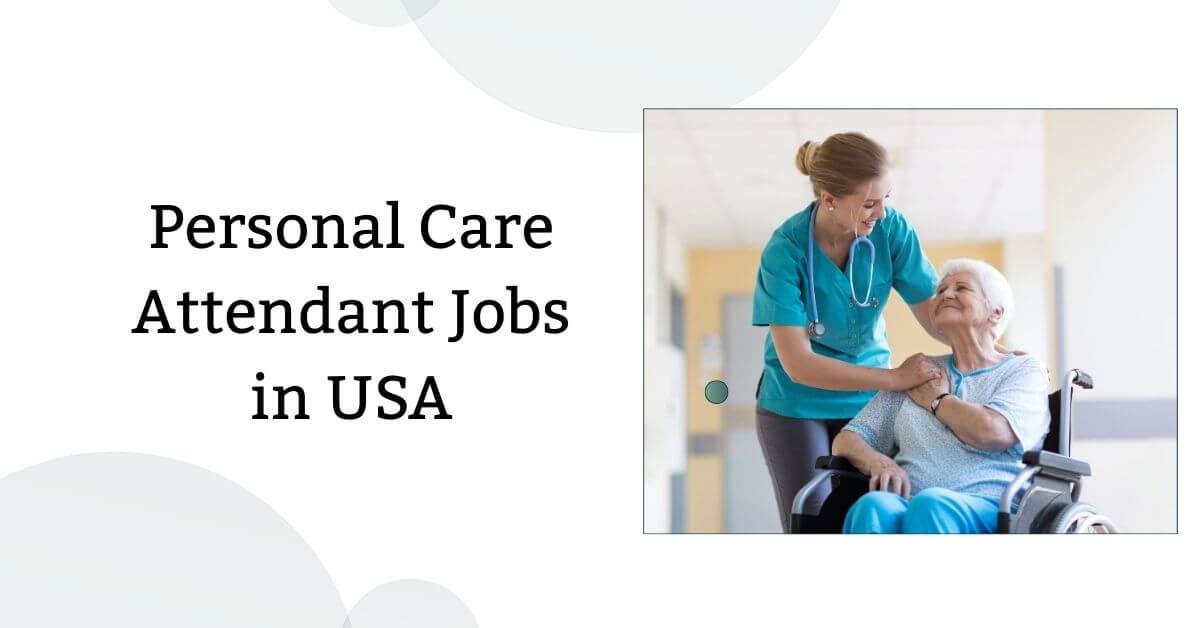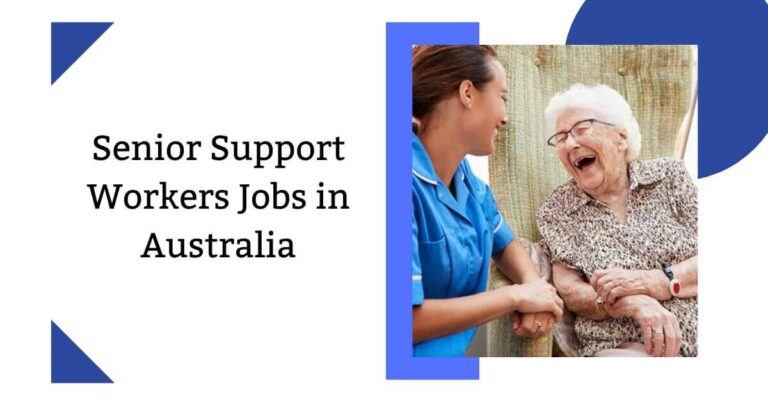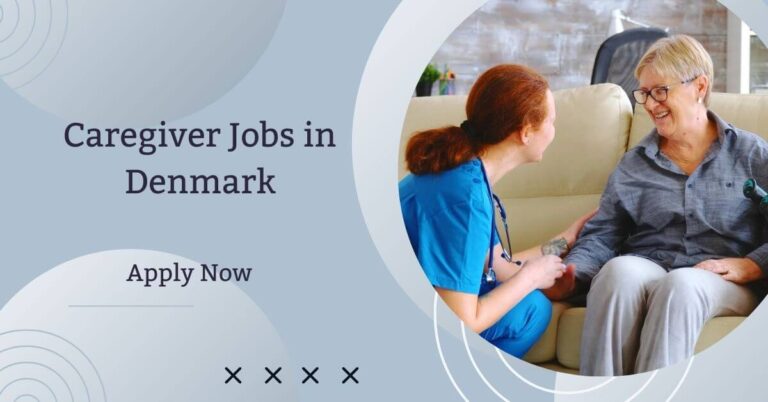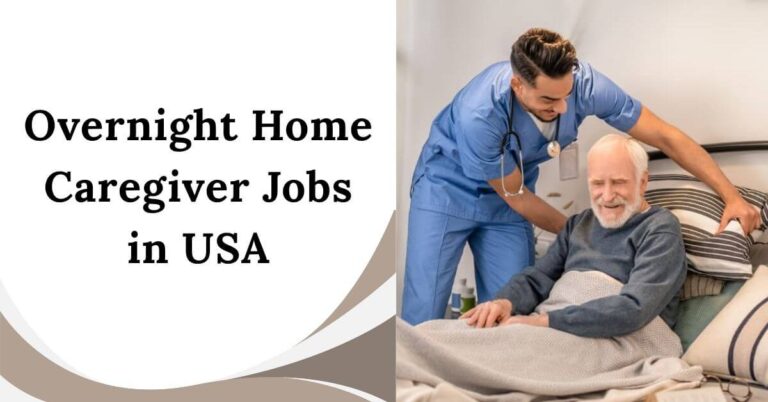Personal Care Attendant Jobs in USA 2026 – Apply Now
A Personal Care Attendant (PCA) is essential in improving the quality of life for individuals who may need assistance due to age, illness, or disabilities. In addition to the fundamental responsibilities of bathing, clothing, and meal preparation, personal care assistants (PCAs) promote emotional well-being by offering companionship and assistance.
The relational aspect of their work is frequently overlooked; the connection between a PCA and their client can serve as a source of comfort, motivating clients to become more involved in their daily lives.
Details of Jobs:
- Position Title: Personal Care Attendant
- No. of Available Positions: Not Mentioned
- Job Type: Full Time Job
- Education: high school diploma
- Experience: 0 -1 year
- Job Location: United States
What is a Personal Care Attendant?
A Personal Care Attendant is a professional who has received training and is capable of assisting individuals with physical, mental, or emotional disabilities with tasks that they are unable to complete independently. The scope of work may differ based on the client’s requirements; however, it typically encompasses support for activities of daily living (ADLs), including:
- Bathing and grooming
- Dressing and undressing
- Mobility assistance (helping clients move from one place to another)
- Meal preparation and feeding
- Medication reminders
- Light housekeeping (e.g., cleaning and laundry)
- Transportation to appointments or social outings
Although Personal Care Attendants are not licensed medical professionals, their role is essential in facilitating the daily activities of individuals who require assistance.
Qualifications and Skills Required:
Advanced degrees are not typically required for Personal Care Attendant positions; however, there are specific qualifications and skills that can ensure that candidates are competitive:
- High School Diploma or GED: The majority of employers mandate a high school diploma or its equivalent.
- Training and Certification: Certain jurisdictions or employers may mandate that personal care assistants (PCAs) complete training programs. Although certifications are not always required, numerous organizations provide certification programs to guarantee that employees receive adequate training in patient management, safety protocols, and caregiving techniques.
- Experience: Prior experience in caregiving, whether personal or professional, can be a significant asset. Numerous individuals enter this profession through volunteer work or prior experience caring for family members.
- Compassion and tolerance: The role of a personal care assistant necessitates the capacity to establish trust with clients, as well as the ability to demonstrate empathy and tolerance. It is imperative to possess the capacity to communicate clearly and actively attentively.
- Physical Endurance: The position frequently entails the assistance of physical tasks, making it crucial to be in excellent physical condition, particularly for clients who require assistance with mobility or lifting.
- Background Check and Drug Screening: Background checks are frequently necessary to guarantee safety and security in the case of a personal care assistant (PCA) due to the nature of the job and the close relationship between the individual and their clients.
Benefits of Job:
- Strong Job Demand Across the Nation: The United States has a consistently high demand for Personal Care Attendants due to the increasingly aging population, which provides strong job security and employment opportunities in every state.
- International Workers’ Visa Sponsorship Opportunities: Certain healthcare agencies and long-term care facilities provide visa sponsorship, which facilitates the legal residence and employment of qualified international personal care assistants in the United States.
- Flexible Work Schedules to Fit Your Lifestyle: PCA roles provide a range of flexible scheduling options to accommodate a variety of personal routines and responsibilities, including part-time, full-time, day shifts, and night shifts.
- Emotionally Rewarding Career Helping Others: PCAs create a meaningful and fulfilling daily experience by providing compassionate care to those in need, thereby making a real difference in the lives of individuals. This is an emotionally rewarding career that provides assistance to others.
- Entry-Level Position with Potential for Growth: The majority of PCA positions necessitate only rudimentary training or certification, rendering them an accessible entry into the healthcare industry. There is also the potential to progress to CNA, LPN, or RN positions in the future.
- Competitive Hourly Wages with Overtime Potential: A significant portion of PCAs earn competitive hourly rates, and working additional hours or holidays can result in a substantial increase in income through paid overtime.
- Paid Training and Certification Support: Employers frequently offer financial assistance or paid training programs to assist you in obtaining the requisite certifications, such as CPR, First Aid, or PCA licenses.
- Health Insurance and Retirement Benefits: Full-time PCA positions frequently provide access to healthcare coverage, dental and vision plans, and retirement savings options such as 401(k) contributions.
- Job Stability in a Recession-Resistant Industry: Healthcare is one of the most stable industries in the United States, which means that PCAs are less likely to experience redundancies during economic downturns.
- Work Near Your Home or Travel for New Opportunities: With employment opportunities available throughout the country, you have the option to remain in your local community or explore new locations and states while continuing to pursue your passion.
- Strong Sense of Community and Teamwork: Personal care attendants frequently collaborate with nurses, physicians, families, and other PCAs to cultivate a supportive, team-oriented environment.
Check Also: Home Health Aide Jobs in USA – Apply Now
Where to Find Personal Care Attendant Jobs?
Personal care attendant positions are accessible in an assortment of environments. Employment opportunities are frequently located in the following locations:
- Home Health Agencies: A significant number of personal care assistants (PCAs) are employed by organizations that specialize in the provision of in-home care to elderly individuals or individuals with disabilities.
- Assisted Living Facilities: These facilities are designed to provide support for individuals who require assistance with daily activities but do not require full-time medical care.
- Hospitals and Rehabilitation Centers: Certain hospitals employ Personal Care Attendants to provide support to patients who are recuperating from surgery or illness.
- Private Clients: A number of personal care assistants (PCAs) work directly with families or individuals, frequently coordinating their own schedules and responsibilities.
- Nursing Homes: These institutions frequently employ personal care assistants (PCAs) to administer care to residents who may have more severe cognitive or physical impairments.
Job Outlook and Pay:
As the baby boomer population ages and the number of individuals with chronic health conditions increases, the demand for Personal Care Attendants is anticipated to continue increasing in the future years. As per the U.S. Bureau of Labor Statistics (BLS), the employment of home health aides (which encompasses Personal Care Attendants) is anticipated to increase by 25% from 2021 to 2031, a rate that exceeds the average for all occupations.
The median annual remuneration for a Personal Care Attendant is contingent upon experience, location, and employer. The median annual salary for home health aides is approximately $29,000 as of 2021, with hourly wages ranging from $10 to $15. Nevertheless, wages may be greater in areas with a higher demand, such as affluent regions or major cities.
Challenges of the Role:
Although the profession of Personal Care Attendant can be fulfilling, it is not without its obstacles. These may encompass:
- Physical Requirements: The position may require lifting, transporting, and assisting clients with mobility. Working with clients who are immobile or require substantial assistance with transportation can be physically taxing.
- Emotional Demands: Your clients may form close relationships with you, and addressing their health issues or end-of-life concerns can be emotionally overwhelming.
- Working irregular hours: Although flexibility can be advantageous, it may necessitate working weekends, evenings, or overnight shifts, contingent upon the customers’ requirements.
How to Apply For Personal Care Attendant Jobs in USA?
If you are interested in Personal Care Attendant Jobs in the United States, please contact us using the information provided below. We will provide you with additional information regarding the position.
Conclusion:
Personal Care Attendant positions in the United States provide an exceptional combination of career advancement, flexibility, and job satisfaction. The field offers a stable career path for individuals with a desire to assist others and compassion, as the demand for these services continues to increase. Whether you are just entering the healthcare industry or seeking a significant career transition, becoming a Personal Care Attendant may be the ideal option for you.
Frequently Asked Questions:
What are the main duties of a personal care attendant in the USA?
Personal care attendants assist clients with daily living activities such as bathing, grooming, mobility, meal preparation, and companionship at home or in care facilities.
Is formal education required to become a personal care attendant?
A high school diploma is usually enough. Some states require basic training or certification, but many employers provide on-the-job education.
Are personal care attendant jobs in the USA open to foreigners?
Yes, but it’s limited. Some agencies may offer visa sponsorship through programs like H-2B, though most prefer candidates already in the U.S. with legal work authorization.







